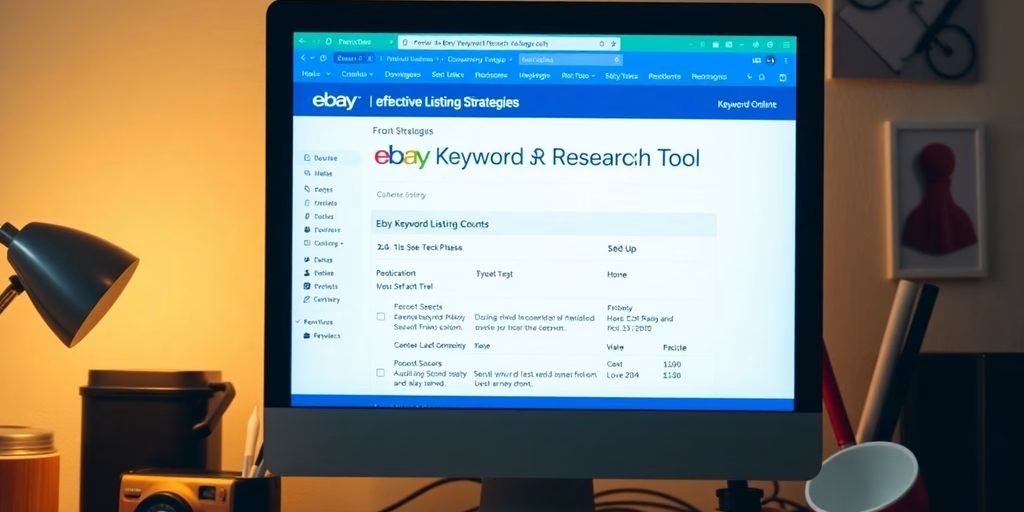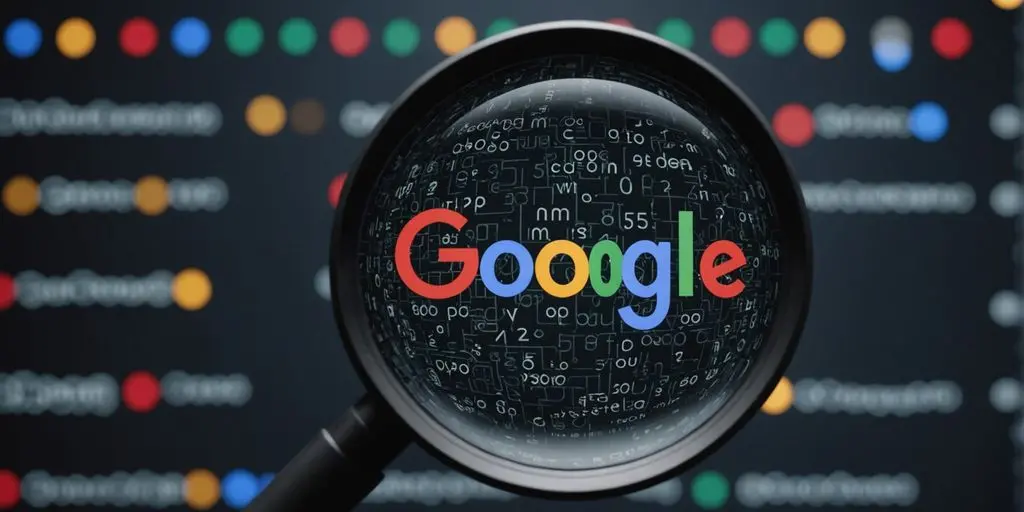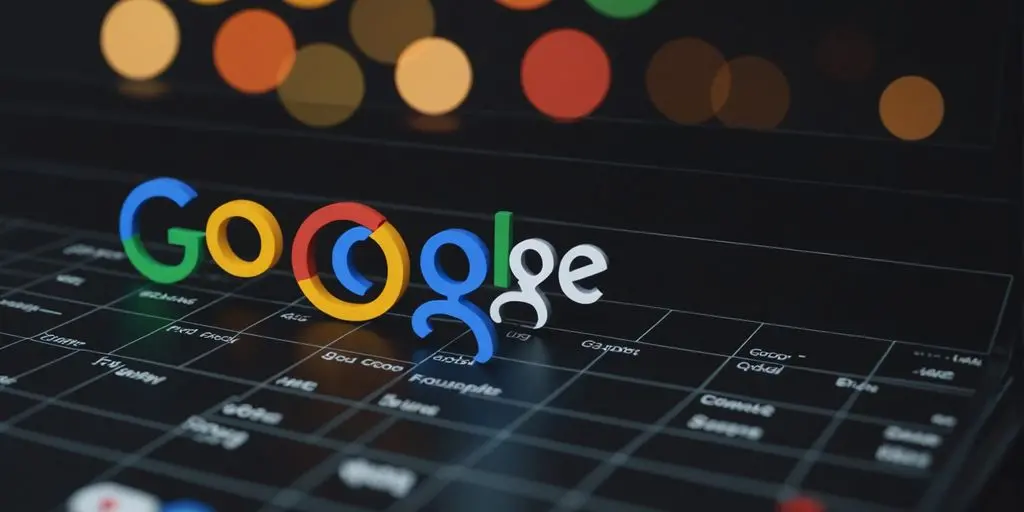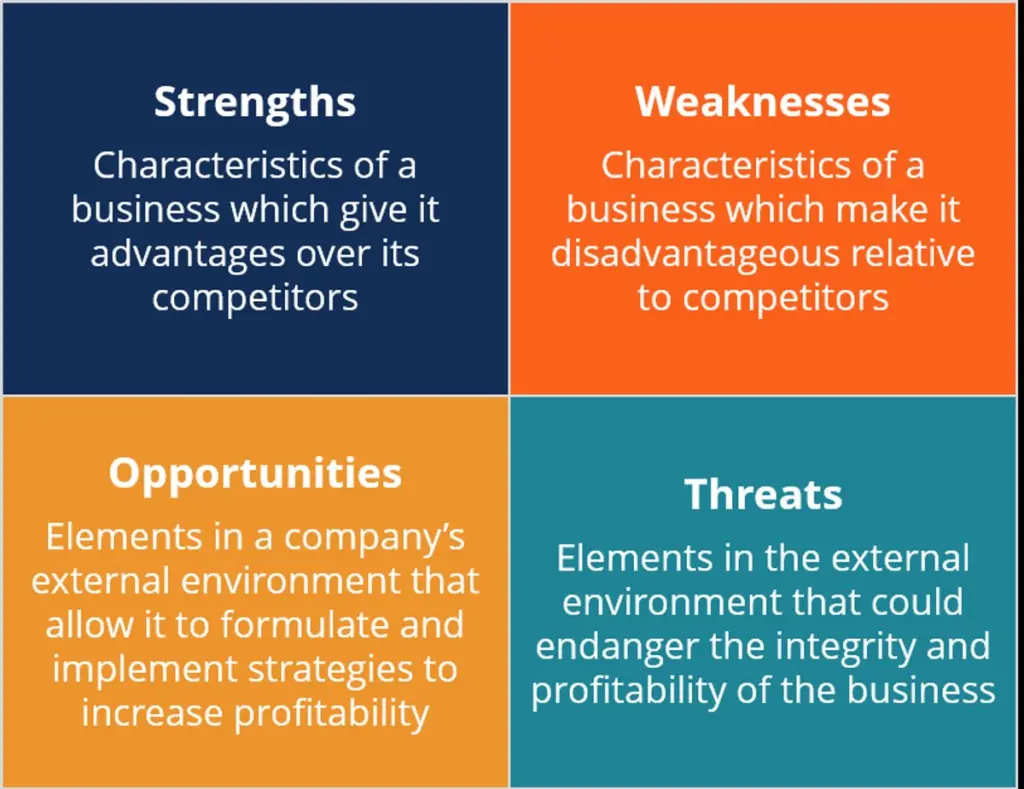Jenis kecocokan kata kunci sangat penting bagi siapa pun yang menjalankan kampanye bayar per klik (PPC). Mereka membantu Anda mengontrol penelusuran mana yang memicu iklan Anda. Dari pencocokan luas hingga pencocokan tepat, setiap jenis memiliki kekuatan dan kelemahannya sendiri. Memahami hal ini dapat membuat kampanye Anda lebih efektif dan menghemat uang.
Daftar Isi
BeralihHal-hal Penting yang Dapat Dipetik
- Jenis kecocokan kata kunci membantu memutuskan pencarian mana yang menampilkan iklan Anda.
- Pertandingan yang luas dapat menjangkau audiens yang luas tetapi mungkin tidak tepat.
- Pencocokan frasa menyeimbangkan jangkauan dan presisi.
- Exact match menawarkan kontrol yang paling baik, tetapi membatasi jangkauannya.
- Pencocokan negatif membantu menyaring lalu lintas yang tidak diinginkan.
Dasar-dasar Jenis Kecocokan Kata Kunci
Apa Saja Jenis Kecocokan Kata Kunci?
Jenis pencocokan kata kunci membantu Anda mengontrol kueri penelusuran mana yang dapat memicu iklan penelusuran Anda. Mereka memungkinkan Anda menyeimbangkan jangkauan dengan relevansi, memastikan iklan Anda muncul untuk penelusuran yang tepat. Anggap saja mereka sebagai filter yang memutuskan kapan iklan Anda muncul.
Mengapa Mereka Penting dalam Kampanye PPC
Memahami jenis kecocokan kata kunci sangat penting untuk menjalankan kampanye PPC yang efektif. Jenis ini memungkinkan Anda menargetkan audiens dengan lebih tepat, yang dapat menghasilkan rasio klik-tayang dan konversi yang lebih baik. Menyeimbangkan jangkauan dengan relevansi adalah kunci untuk memaksimalkan belanja iklan Anda.
Kesalahpahaman Umum
Banyak orang berpikir bahwa menggunakan pencocokan luas akan selalu mendapatkan trafik terbanyak, tetapi itu tidak selalu benar. Mitos umum lainnya adalah bahwa pencocokan tepat terlalu membatasi. Pada kenyataannya, setiap jenis pencocokan memiliki pro dan kontra, dan pilihan terbaik tergantung pada tujuan spesifik Anda.
Menggunakan jenis kata kunci yang tepat dapat membuat atau menghancurkan kampanye PPC Anda. Pilihlah dengan bijak!
Pertandingan yang luas: Melempar Jaring Lebar

Pertandingan yang luas seperti melempar jaring ikan yang besar ke laut. Anda mungkin akan menangkap banyak ikan, tetapi tidak semuanya akan menjadi ikan yang Anda inginkan. Salah satu manfaat utama dari memanfaatkan kecocokan luas dalam kampanye penelusuran berbayar Google Anda adalah potensi untuk menjangkau audiens yang lebih besar. Dengan melemparkan jaring yang lebih luas dengan kata kunci yang Anda pilih, Anda membuka pintu untuk menangkap lalu lintas yang relevan yang mungkin belum ditargetkan dengan jenis kecocokan yang lebih terbatas.
Cara Kerja Broad Match
Pencocokan luas bekerja dengan menampilkan iklan Anda kepada orang-orang yang mencari variasi kata kunci Anda. Ini dapat mencakup sinonim, penelusuran terkait, dan bahkan salah eja. Misalnya, jika kata kunci Anda adalah "sepatu lari," iklan Anda mungkin muncul untuk penelusuran seperti "sepatu lari" atau "alas kaki atletik."
Pro dan Kontra dari Pertandingan Luas
Menggunakan korek api yang luas memiliki pasang surut:
Kelebihan:
- Menjangkau audiens yang lebih besar
- Menangkap istilah pencarian yang tidak terduga
- Baik untuk kampanye baru
Kekurangan:
- Dapat menarik klik yang tidak relevan
- Biaya lebih tinggi karena penargetan yang luas
- Membutuhkan lebih banyak pemantauan
Kapan Menggunakan Pencocokan Luas
Kecocokan luas adalah titik awal yang baik untuk pengiklan yang ingin melemparkan jaring yang luas tetapi tidak memiliki sumber daya untuk mengoptimalkan kampanye mereka. Hal ini juga berguna ketika Anda mencoba mengumpulkan data tentang kata kunci mana yang berkinerja terbaik. Namun, bersiaplah untuk menyempurnakan strategi Anda sambil berjalan.
Pertandingan yang luas bisa menjadi pedang bermata dua. Meskipun membantu Anda menjangkau lebih banyak orang, hal ini juga dapat menyebabkan pemborosan jika tidak dikelola dengan hati-hati.
Pencocokan Frasa: Jalan Tengah

Memahami Pencocokan Frasa
Pencocokan frasa seperti Goldilocks dari jenis pencocokan kata kunci - tidak terlalu luas, tidak terlalu sempit, tetapi tepat. Saat Anda menggunakan pencocokan frasa, iklan Anda muncul untuk penelusuran yang menyertakan frasa yang tepat atau variasi yang mendekati. Ini berarti Anda mendapatkan lebih banyak kontrol atas siapa yang melihat iklan Anda dibandingkan dengan pencocokan luas, tetapi Anda masih menjangkau audiens yang lebih luas dibandingkan dengan pencocokan tepat.
Keuntungan dari Pencocokan Frasa
Pencocokan frasa menawarkan titik temu antara jangkauan dan relevansi. Berikut adalah beberapa keuntungannya:
- Penargetan yang lebih baik: Iklan Anda muncul untuk penelusuran yang menyertakan frasa yang tepat, sehingga membantu Anda menjangkau audiens yang lebih tertarik.
- Hemat biaya: Anda terhindar dari membuang-buang uang untuk klik yang tidak relevan, membuat anggaran Anda lebih hemat.
- Fleksibilitas: Anda masih bisa menangkap kata kunci berekor panjang dan variasinya, meningkatkan visibilitas Anda.
Skenario Ideal untuk Pencocokan Frasa
Kecocokan frasa bersinar dalam beberapa situasi:
- Apabila Anda ingin menyeimbangkan jangkauan dan presisi: Sangat cocok untuk kampanye yang perlu menjangkau lebih luas tanpa mengorbankan relevansi.
- Saat Anda menguji kata kunci baru: Pencocokan frasa membantu Anda mengukur minat tanpa melakukan pencocokan yang sama persis.
- Untuk bisnis lokal: Ini dapat membantu Anda muncul dalam penelusuran yang menyertakan lokasi Anda, seperti "pizza terbaik di kota."
Pencocokan frasa adalah pilihan tepat ketika Anda membutuhkan jalan tengah antara pencocokan luas dan persis. Fitur ini menawarkan perpaduan antara kontrol dan jangkauan, menjadikannya pilihan serbaguna untuk banyak kampanye.
Kecocokan yang Tepat: Penargetan Presisi
Pencocokan tepat seperti menggunakan penunjuk laser dalam dunia penargetan kata kunci. Ini memastikan iklan Anda hanya muncul ketika seseorang mencari kata kunci yang tepat atau variasi yang sangat mirip. Ini berarti Anda mendapatkan lalu lintas yang sangat relevan, tetapi juga berarti lebih sedikit tayangan.
Manfaat utama dari pencocokan tepat adalah mendatangkan pengguna yang secara khusus mencari apa yang Anda tawarkan. Hal ini dapat menghasilkan tingkat konversi yang lebih tinggi karena maksud pencariannya jelas. Namun, sisi negatifnya adalah Anda mungkin kehilangan pelanggan potensial yang menggunakan istilah pencarian yang berbeda.
Untuk mendapatkan hasil maksimal dari pencocokan yang tepat, ikuti praktik terbaik ini:
- Tinjau dan perbarui daftar kata kunci Anda secara teratur.
- Gunakan kata kunci negatif untuk menyaring lalu lintas yang tidak diinginkan.
- Pantau kinerja kampanye Anda dan sesuaikan tawaran sesuai kebutuhan.
Pencocokan yang tepat adalah tentang presisi. Ini seperti memancing dengan tombak, bukan jaring. Anda mungkin akan menangkap lebih sedikit ikan, tetapi ikan-ikan itu adalah ikan yang Anda inginkan.
Kecocokan Negatif: Menyaring Kebisingan
Kata kunci pencocokan negatif seperti penjaga kampanye PPC Anda, menjaga agar tidak ada yang mengganggu. Mereka blokir iklan Anda agar tidak muncul ketika kata-kata tertentu dicari. Hal ini membantu Anda menghindari pemborosan uang untuk klik yang tidak akan dikonversi.
Apa yang dimaksud dengan Pertandingan Negatif?
Kata kunci pencocokan negatif adalah istilah yang Anda tidak ingin iklan Anda muncul. Misalnya, jika Anda menjual jam tangan mewah, Anda dapat menambahkan "murah" sebagai kata kunci negatif untuk menghindari kemunculan iklan "jam tangan murah" dalam penelusuran.
Pentingnya Kecocokan Negatif
Menggunakan kata kunci yang cocok dengan kata kunci negatif sangat penting untuk menyempurnakan penargetan iklan Anda. Hal ini memastikan iklan Anda menjangkau audiens yang tepat, menghemat uang dan meningkatkan kinerja kampanye Anda. Anggap saja sebagai filter yang mencegah lalu lintas yang tidak diinginkan.
Cara Menerapkan Pencocokan Negatif Secara Efektif
- Mengidentifikasi kata kunci yang tidak relevan: Lihat laporan istilah pencarian Anda untuk menemukan kata kunci yang tidak terkonversi.
- Tambahkan kata kunci ini ke daftar kata kunci negatif Anda.
- Perbarui daftar Anda secara teratur agar tetap relevan.
Dengan menggunakan kata kunci kecocokan negatif, Anda dapat memfokuskan anggaran Anda pada penelusuran yang lebih mungkin dikonversi, sehingga kampanye Anda lebih efisien dan efektif.
Memilih Jenis Pertandingan yang Tepat untuk Kampanye Anda

Faktor yang Perlu Dipertimbangkan
Saat memilih jenis kecocokan yang tepat untuk kampanye AndaAnda perlu memikirkan beberapa hal. Pertama, ketahui tujuan Anda. Apakah Anda ingin menjangkau audiens yang luas atau menargetkan pengguna tertentu? Jawaban Anda akan memandu pilihan Anda. Juga, pertimbangkan anggaran Anda. Beberapa jenis pertandingan mungkin lebih mahal tetapi memberikan hasil yang lebih baik. Terakhir, pikirkan tentang industri. Beberapa bidang mungkin lebih diuntungkan dengan satu jenis pertandingan daripada yang lain.
Menggabungkan Jenis Pertandingan yang Berbeda
Menggunakan campuran jenis padu padan bisa menjadi langkah yang cerdas. Sebagai contoh, Anda dapat menggunakan kecocokan yang luas untuk mendapatkan banyak lalu lintas dan kecocokan yang tepat untuk menargetkan pengguna tertentu. Dengan cara ini, Anda mendapatkan yang terbaik dari kedua hal tersebut. Berikut adalah beberapa tips:
- Mulailah dengan kecocokan yang luas untuk mengumpulkan data.
- Gunakan pencocokan frasa untuk mempersempit audiens Anda.
- Terapkan pencocokan tepat untuk penargetan yang tepat.
- Jangan lupa untuk menggunakan negative match untuk menyaring trafik yang tidak diinginkan.
Menyesuaikan Strategi Berdasarkan Kinerja
Penting untuk mengawasi bagaimana kinerja kampanye Anda. Jika Anda melihat satu jenis kecocokan bekerja lebih baik, Anda mungkin ingin mengalihkan lebih banyak anggaran Anda ke sana. Sebaliknya, jika ada sesuatu yang tidak berhasil, jangan takut untuk melakukan perubahan. Periksa metrik kinerja Anda secara teratur dan sesuaikan strategi Anda sesuai kebutuhan.
Ingat, kunci dari kampanye yang sukses adalah fleksibilitas. Bersiaplah untuk beradaptasi dan mengubah pendekatan Anda berdasarkan apa yang dikatakan oleh data.
Jebakan Umum dan Cara Menghindarinya

Terlalu Bergantung pada Satu Jenis Pertandingan
Terlalu bergantung pada satu jenis pertandingan bisa menjadi kesalahan besar. Ini seperti menaruh semua telur dalam satu keranjang. Diversifikasi jenis kecocokan kata kunci Anda dapat membantu Anda menjangkau audiens yang lebih luas dan meningkatkan kinerja kampanye Anda. Coba padukan pencocokan luas, frasa, dan persis untuk melihat mana yang paling cocok untuk Anda.
Mengabaikan Kata Kunci Negatif
Kata kunci negatif seperti pahlawan tanpa tanda jasa dalam kampanye PPC. Mereka membantu Anda menyaring lalu lintas yang tidak diinginkan dan menghemat uang. Mengabaikannya dapat menyebabkan pemborosan pengeluaran iklan dan menurunkan ROI. Pastikan untuk memperbarui daftar kata kunci negatif Anda secara teratur agar kampanye Anda berjalan lancar.
Tidak Memantau Kinerja Kampanye
Menyiapkan kampanye hanyalah permulaan. Jika Anda tidak mengawasi kinerjanya, Anda mungkin kehilangan wawasan penting. Periksa metrik kinerja kampanye Anda secara teratur untuk melihat apa yang berhasil dan apa yang tidak. Hal ini akan membantu Anda membuat keputusan yang tepat dan menyesuaikan strategi sesuai kebutuhan.
Ingat, kampanye yang dipantau dengan baik adalah kampanye yang sukses. Jangan mengaturnya dan melupakannya!
Menavigasi melalui jebakan umum bisa jadi rumit, tetapi dengan panduan yang tepat, Anda dapat menghindarinya dengan mudah. Kunjungi situs web kami untuk mempelajari lebih lanjut tentang cara menghindari kesalahan-kesalahan ini dan menempatkan bisnis Anda di jalur kesuksesan. Jangan lewatkan tips dan wawasan yang berharga!
Membungkusnya: Kata Terakhir tentang Jenis Pencocokan Kata Kunci
Baiklah, teman-teman, kita telah menjelajahi dunia liar dari jenis pencocokan kata kunci. Dari pencocokan luas hingga pencocokan tepat, setiap jenis memiliki keunikan dan keistimewaan tersendiri. Sekarang, Anda seharusnya sudah memiliki pemahaman yang kuat tentang cara menggunakan alat-alat ini untuk keuntungan Anda. Ingat, kuncinya adalah bereksperimen dan melihat apa yang paling cocok untuk kampanye Anda. Jangan takut untuk mencampuradukkan berbagai hal dan mencoba berbagai strategi. Bagaimanapun juga, lanskap pemasaran digital selalu berubah. Jadi, teruslah belajar, tetaplah ingin tahu, dan yang terpenting, bersenang-senanglah dengan hal itu! Selamat mengoptimalkan!
Pertanyaan yang Sering Diajukan
Apa yang dimaksud dengan jenis kecocokan kata kunci?
Jenis kecocokan kata kunci adalah pengaturan dalam kampanye PPC yang mengontrol penelusuran mana yang memicu iklan Anda. Jenis ini membantu Anda menjangkau audiens yang tepat dengan mencocokkan iklan Anda dengan istilah penelusuran yang relevan.
Mengapa jenis kecocokan kata kunci penting dalam kampanye PPC?
Hal ini penting karena membantu Anda mengontrol siapa yang melihat iklan Anda. Menggunakan jenis kecocokan yang tepat dapat meningkatkan kinerja iklan Anda dan menghemat uang.
Apa yang dimaksud dengan pertandingan yang luas?
Pencocokan luas adalah jenis pencocokan kata kunci yang menampilkan iklan Anda untuk pencarian yang menyertakan kata apa pun dalam kata kunci Anda, dalam urutan apa pun. Ini melemparkan jaring yang luas untuk menjangkau audiens yang lebih besar.
Kapan saya harus menggunakan pencocokan frasa?
Gunakan pencocokan frasa saat Anda ingin iklan Anda ditampilkan untuk pencarian yang menyertakan frasa yang sama persis dengan kata kunci Anda, tetapi dengan kata lain sebelum atau sesudahnya. Ini bagus untuk menargetkan audiens yang lebih spesifik.
Bagaimana cara kerja pencocokan tepat?
Pencocokan tepat menampilkan iklan Anda hanya untuk penelusuran yang sama persis dengan kata kunci Anda atau variasi yang mendekati. Ini menawarkan penargetan yang tepat, membuatnya lebih mudah untuk menjangkau audiens yang tepat.
Apa yang dimaksud dengan kecocokan negatif dan mengapa hal ini penting?
Kecocokan negatif mencegah iklan Anda muncul untuk istilah pencarian tertentu. Hal ini penting karena membantu Anda menghindari klik yang tidak relevan, menghemat uang, dan meningkatkan performa iklan Anda.









































































































